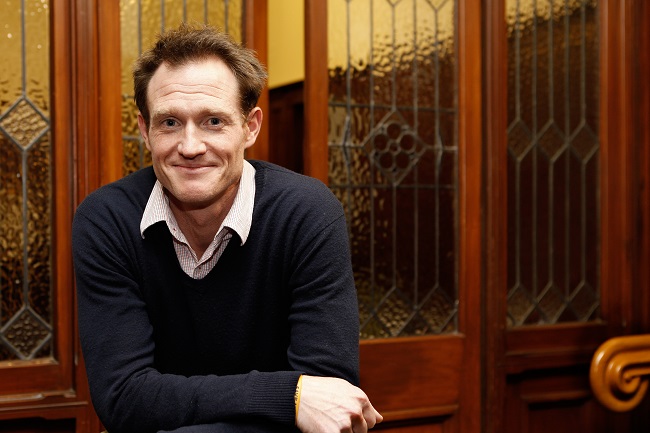
Dr Will Rayment, Otago's 2015 supervisor of the year
Dr Will Rayment loves supervising postgraduate students.
And the feeling is obviously mutual as his Master's and PhD thesis candidates played a key role in him recently being presented with the University of Otago Supervisor of the Year award.
Dr Rayment, who currently has three PhD and five Master's students in the Marine Science department, says being available and supportive are the key things a supervisor brings to the relationship.
“I think the first thing is to be available, when they have questions, or issues, that they need sorted straight away. To send them an email, or see them promptly is key.
“They are all very bright young scientists, but that doesn't mean they don't need support. Sometimes it's just encouragement that their ideas are good ones.”
This is particularly true for Master's students, who are embarking on their first big piece of independent research.
Sometimes it's just encouragement that their ideas are good ones.
At Master's level Dr Rayment expects potential students to have enthusiasm first and foremost – the skills necessary for completing the research may not be there yet, but being committed to the topic is important.
By PhD level, students should have evidence of independent research and the practical skills to achieve their ideas, so they need less hands-on assistance.
Researching megafauna
Dr Rayment studies the demographics and distribution of marine animals, in particular marine megafauna, such as whales and dolphins.
His work on spatial ecology allows understanding of the human impacts on these animals, and potential ways to mitigate them.
One of the reasons he loves supervising postgraduates is the way it extends the range of research he gets to work on.
“It enables me to work on a whole lot of interesting things I wouldn't normally have the chance to. The realities of teaching and administration, limit the research I can do personally.
“My students help to broaden my research experience.
“They are working on seven-gill sharks, scallops, clam parasites – all interesting things I wouldn't learn about otherwise.”
